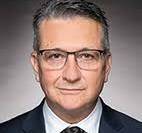Farmers can expect more public and government scrutiny of their fertilizer use and need to be vigilant that they meet acceptable standards, says the chair of the newly created Crop Nutrient Council.
Cam Dahl of Grain Growers of Canada said farmers must be prepared to justify their fertilizing practices in the face of growing public interest in the issue.
“I think farmers need to be aware of this, need to be adopting best practices and need to have both information and a voice,” he said from his Ottawa office.
Read Also

Going beyond “Resistant” on crop seed labels
Variety resistance is getting more specific on crop disease pathogens, but that information must be conveyed in a way that actually helps producers make rotation decisions.
The council, formed in May with first-year funding of approximately $120,000 from the federal Canadian Adaptation and Rural Development fund and support from fertilizer, livestock and grain groups, will advise government on farm environmental issues and farmers on impending government environmental regulations, and encourage farmers to recognize the new environmental emphasis in public policy and opinion.
“It is fair to say this is a response to the growing reality of environmental rules and public attention,” Dahl said.
The council is an initiative of the Canadian Fertilizer Institute and CFI official Clyde Graham will be the council executive director. Its bureaucratic home will be in CFI’s Ottawa offices.
The council held its founding meeting in May and will hold an annual meeting in Regina in late November.
Dahl said there is increasing federal emphasis on environmental issues through the agricultural policy framework, the goal of national environmental farm plans and increasing federal, provincial and local government concern about nutrient runoff.
He said the council goal will be to advise government on common industry positions.
“If this works the way it should, if government wants to get an industry opinion or to bounce some ideas, we’ll be able to offer some consistent and well-developed positions from the industry,” Dahl said.
He added that farmers will be under growing pressure to adopt farm environmental plans if they want access to future government programs.
“We will be able to tell them what we see coming, what it means and how they can adapt.”
Although initial funding comes from the federal government, council promoters hope that in the future, members such as the Canadian Fertilizer Institute and its member companies, the Canadian Cattlemen’s Association, Canadian Pork Council, Canadian Federation of Agriculture, GGC and Ducks Unlimited will see enough value to fund it through membership fees.















